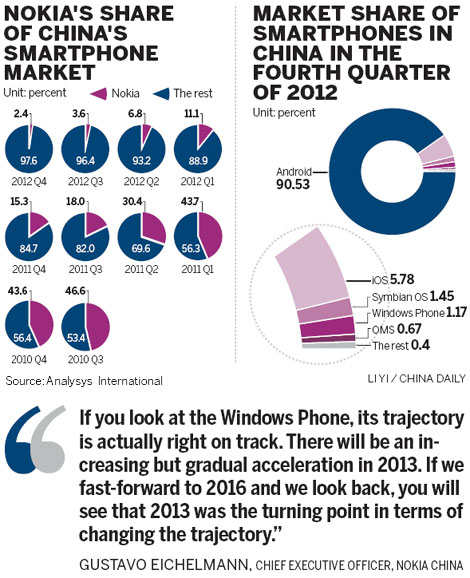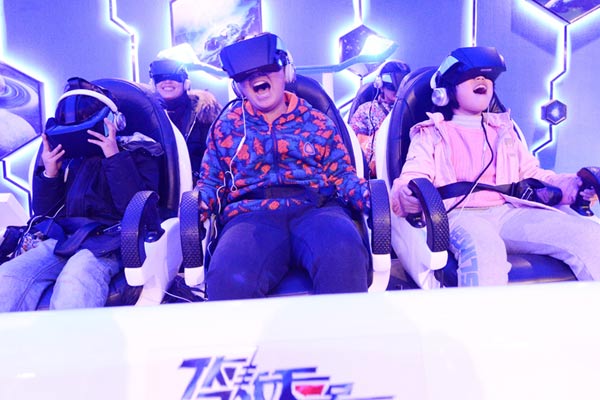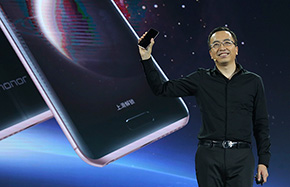Nokia signals China ambitions

When Li was a college student, her father sent her a Nokia device. It was the first mobile phone she ever owned. There are millions of people in China like Li that adopted Nokia as an integral part of their lives.
"Compared with other international smartphone vendors such as Apple and HTC, one of the major advantages of Nokia in China is its branding," said Yan Xiaojia, a telecom analyst at Analysys International.
Nokia has had a presence in China for more than two decades and the company has about 250 million users in the country.
But Li was not very comfortable with the Windows Phone system. "I used an Android phone before so when I tried the new Nokia models I needed time to get used to them," she said. Eventually she gave up and bought an iPhone 4S.
In a China Mobile outlet in Changchun, in Jilin province, salesman Zhao Xin said many people were curious about Nokia phones, especially the latest Lumia 920, but there were too few in stock and the outlet missed out on the traditional Spring Festival shopping season.
"The biggest winners now are domestic brands, such as Huawei, Lenovo and ZTE. People buy them because they are good quality and also are much cheaper," Zhao said.
"The Chinese market is highly competitive. The dynamics of the competition are probably the most advanced I have ever seen," Eichelmann said. With about 1.1 billion mobile phone subscribers, China attracts a lot of industry players both at home and abroad.
"The product cycle in China's smartphone market is the fastest. Nokia needs to drive the consistency of its brand and innovation," he said.
Chinese rivals emerged and gradually snatched the market share that Nokia lost. Huawei, the Shenzhen-based telecom giant, rose to become the world's third-largest smartphone vendor in the fourth quarter last year, with a 4.9 percent market share worldwide, according to a report issued by International Data Corp.
In contrast, Nokia's China ranking dropped to fifth place in the first half of 2012, from the top position at the end of 2011, according to research by IHS.
Samsung topped the list and shipped more than double the number of smartphones than Nokia managed, gaining a market share of 20.8 percent - 14.4 million smartphones - in the first six months of last year, IHS said.
Nokia faced the most direct competition in the territory of Windows Phone devices. Taiwan-based HTC jumped ahead of Nokia to launch the first Windows Phone 8 handset in the Chinese mainland. Samsung, ZTE and Huawei have also expressed an ambition to develop Windows Phones.
"Nokia welcomes the competition, and the competition fuels the strength of the Windows Phone ecosystem," Eichelmann said. Among all the devices, Nokia definitely has its own unique qualities, he said.
The latest Nokia smartphone Lumia 920 has the ability to synchronize content between Windows Phone 8 smartphones, Windows 8-based PCs, tablets and the Xbox, said Flann Gao, Nokia China communications manager.
There are other innovative functions as well, he added. The Nokia City Lens, one of the highlights, is an augmented reality software that gives dynamic information about users' surroundings. "City Lens makes finding the best of what's around you as simple and natural as looking through the smartphone display," Gao said.

















